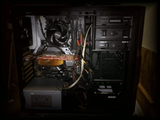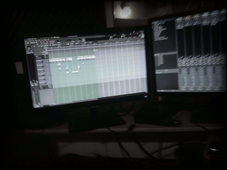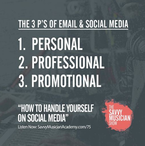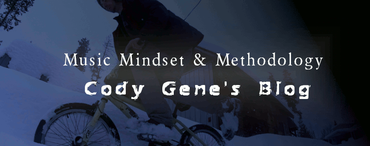IF your answer is yes, then you're probably doing it wrongHey, It's Cody Gene here from Gene Media. Welcome to 2020! We're opening up a whole bag of Music mindsets, principles, and Methodologies to help you as an artist, creative, and entrepreneur. For the new year, we'll (I'll) be bringing you more creative-focused content in these three categories...
Are you a songwriter? Enter the Contest at
www.genemediacreativestudio.com/contest Are you a thinker? Do you like food for thought? Big picture thinking? Visit the blog at www.genemediacreativestudio.com/blog insert wall of text hereI guess the first question would be how do you want to capture your ideas? If you have a decent laptop or computer you can use a DAW with an audio interface. *Cubase/nuendo, protools, logic, studio one, reaper, are a few examples. For basic tracking they all do pretty much the same thing. The workflow and the price-point is the main consideration while you're just starting out. For Audio interfaces, there are quite a few out there. It depends on your budget. like, the Behringer U-phoria series is probably the cheapest, and the Apollo ones are on the top-end. I'd recommend going onto amazon to browse and read reviews if that's the way you want to go. Just remember, you usually get what you pay for, so if you can afford to spend the $$$, then get the best you can. Or you could use a built-in recorder that captures to SD card (like someone mentioned the zoom R16) I had one of those for years, they're mobile and useful, but the preamps aren't the greatest. but it gets the job done. other considerations, will be how many channels you need. will you want to use mics (if so do you have a nice quiet room?), or a direct-in signal? I'm guessing you could probably get by with a 2 channel (for most purposes) or an 8 channel if you need to track drums, or want to go all out with lots of mics.  Sample rate and Bit Depth are another consideration. this will look like (sample rate 44,100 48,000 96,000) (bit depth 16, 24, or 32, bit) Just use the highest you can get away with. but the higher you go, the more cpu power you'll need, and the more storage space your sessions will take up  Gain staging - once you're setting up to record, set your input gain to the highest you can get without clipping. I'd recommend doing a google search for 'signal to noise ratios audio' or 'gain staging audio' to figure that part out. basically, you want the 'hottest signal you can get without clipping or introducing too much noise' As far as sending your tracks off for mixing. Your engineer will probably ask you to consolidate your tracks. which basically means you export your tracks individually, each beginning at 0:00. This allows for the engineer to easily align them in the new mix session.  Gets me thinking about a lesson I learned recently on understanding yourself & other people. with emphasis on the importance of presentation and how it affects everything. Personal: what are you doing to stay on track?
*insert needs here* Professional: how are you presenting yourself? inter-personally, through your band/niche/culture etc *insert values here* Promotional: how do other people recieve you? analytics, conversations, Email replies *insert systems here* |
Gene Media ProductionsCody Gene: Record Producer Music Methodology & Creative Lifestyle
#
All
Archives
April 2024
|
Categories
|
AboutGene Media Creative Studio is the Production Facility of Indie-Rock producer and songwriter Cody Gene.
|

Gene Media Creative Studio is located in British Columbia, Canada and creative Cody's creative space. here he explores ideas, creative vision, and technical aspects of independent music production + artist development.
|
Contact |


 RSS Feed
RSS Feed